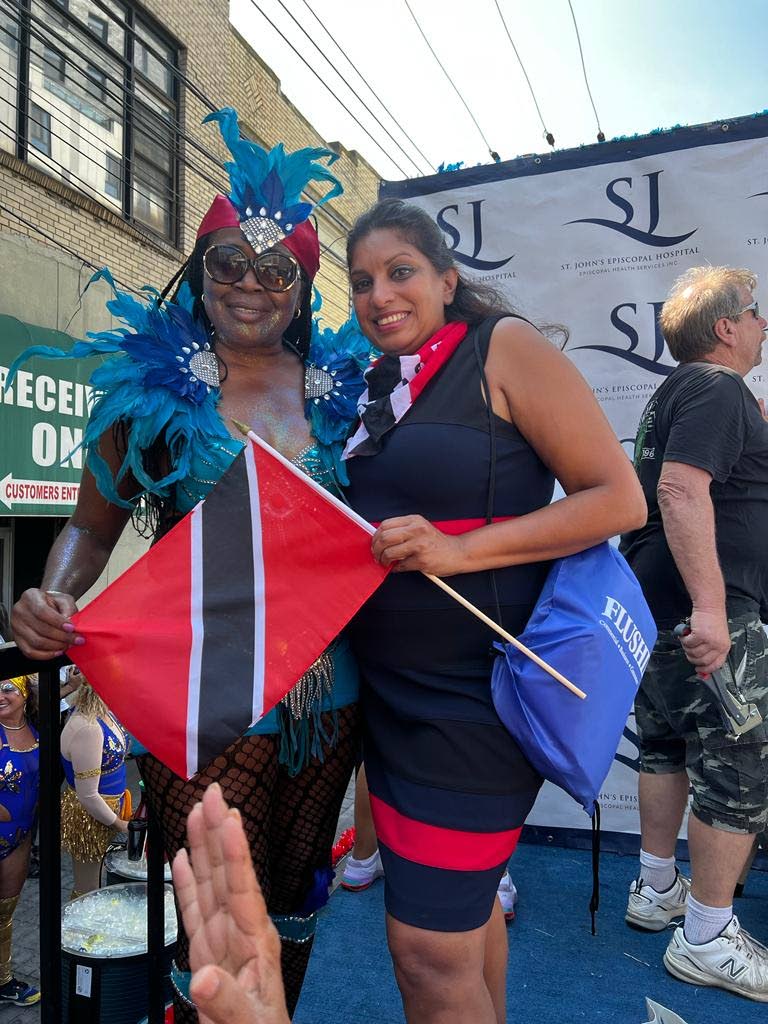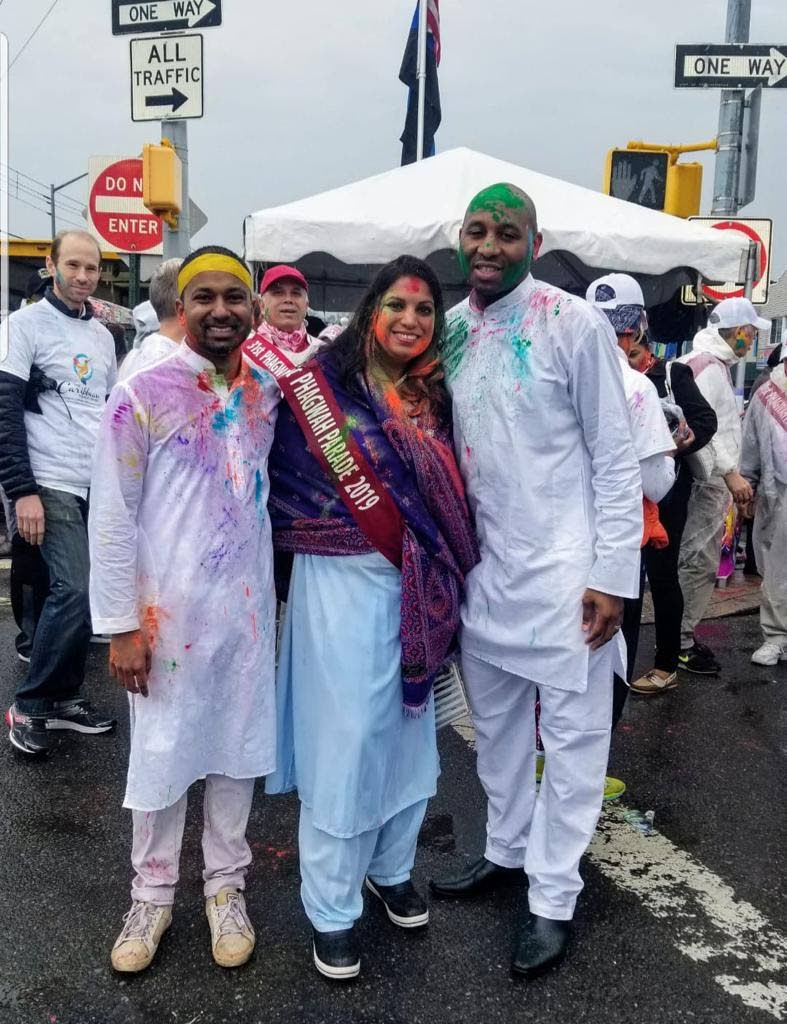Karen Gopee champions education, justice

The chief guest at this year’s Divali Nagar was Justice Karen Gopee, the first Indo-Caribbean Justice of the Supreme Court of New York, who is from Tunapuna.
Gopee’s journey is a testament to her unwavering commitment to education and justice.
Raised in Brooklyn, she navigated the challenges of being an immigrant and a minority, all while excelling in her education.
She was appointed to the New York State Criminal Court in 2015 and elected to the New York State Supreme Court in 2021. Gopee currently presides over a bustling Gun Part in Queens.
Before this, her diverse roles included serving as a principal court attorney at the Red Hook Community Justice Center, where she implemented programmes diverting youth from the criminal justice system. Her initiatives, such as Making the Change and Saturday Night Lights, underscore her commitment to addressing violence and providing mentorship to youth.
Recognised for her contributions, Gopee' awards include the Meritorious Award from the American Bar Association.
Her educational path led her from community public schools to achieving honours at the State University of New York at Binghamton.
The mother of two, a daughter and a son, Gopee admits that balancing a home and motherhood along with such a career is challenging.
“I grew up in a very traditional and strict home surrounded by other immigrants with very little means. While my parents expected my sisters and me to go to school and do well, they also expected us to work, do housework and cook.
"That balance allowed me to learn to do a bit of everything and gave me motivation to work hard, concentrate and volunteer.
"Growing up in an immigrant neighbourhood meant that most of my family, friends and neighbours were not educated in the US and needed help to fill out paperwork including legal documents such as immigration petitions. I saw how nervous they were with anything related to immigration, law enforcement and/or the courts. I saw many incidents of domestic abuse, issues related to alcohol and addiction and poverty. I knew that I wanted to help the people who felt helpless or unrepresented and give them a voice.”
After her Supreme Court election, the induction was a two-part celebration. The official announcement featured a diverse crowd, Trini cuisine, and cultural performances, blending Trinidadian and American elements. The later private celebration included live Trinidadian singers, a DJ, tassa and Indian cuisine, earning praise for its unique and flavourful experience.

Growing up in a traditional immigrant home meant Gopee’s cultural heritage plays a pivotal role in her worldview.
“My Trinidadian heritage and my West Indian identity, learned from my time in Trinidad and instilled by my Trinidadian parents, make up who I am and how I see the world. It has affected the way I live my life, the way I relate and communicate with people, my expectations when I dated and got married, as well as the way I raise my children.
"It has also affected how I approach my work and how I run my courtroom, with understanding, compassion and sympathy, while also being tough and no-nonsense. It motivates me to give back, mentor and help others.”
A practising Hindu, Gopee has maintained her cultural traditions. She does not eat beef or pork, and has a puja area in her home.
“I attend temple and seek blessings. My children and I enjoy Trini food, including curries, roti and doubles. On special occasions, including Christmas, I bake black cake, sponge cake and bread. We blast soca music, chutney and parang in the house, in the car and at parties and we proudly wave the Trinidad and Tobago flag at any event that we can. Trinidad for me is about coming back home, back to family, back to familiarity. Here, I blend in and the music, the cuisine, the customs and traditions are understood, shared and respected...I walked around dressed in a shalwar kameez on my way to Divali Nagar, without stares, pointing or needing to explain why.”
As chief guest of the Divali Nagar, Gopee found immense honour in her role. Her cultural heritage, rooted in TT's diversity, profoundly influenced her legal and community service perspective.
"My Indo-Caribbean heritage and immigrant background impact every aspect of my career.”
She said her background makes her aware of the challenges faced by individuals in the legal system, pushing her to seek solutions like education and mental health support for the accused. She aims to be fair and considerate, diverting appropriate cases to programmes for rehabilitation and closely monitoring their progress.
She does a lot of volunteer work around domestic violence, human trafficking, female empowerment and assisting youths.
She ensures she stays connected with the Trinidadian community in New York. A member of the Trinidadians and Tobagonians USA Association, which helps promote and celebrate the cultures and traditions of TT, she also attends community events, speaks on panels every time she is asked and tries to mentor the youths in the community.

In the last few years, Gopee has assisted in the renaming of Queens' street as Trinidad and Tobago Street and another street for a pundit in New York, as well as planning Divali Nagar in New York, and Divali at Times Square.
“I worked with others to have Divali recognised as a school holiday and co-founded a bar association to create opportunities for advancement of South Asians and Indo-Caribbeans, and I also chair the continuing education programmes for the Caribbean American Lawyers Association."
Gopee said TT and the US have had "a long-standing mutually beneficial relationship.
"In my position, I am able to visit the courts in TT and speak to some high-ranking officials. I am never shy to ask questions or share my perspective, and hope that those conversations can be a place where we can learn from each other and expand and improve our approach. I am always open to share what I have learned, and work with anyone that is willing to listen.”

Comments
"Karen Gopee champions education, justice"